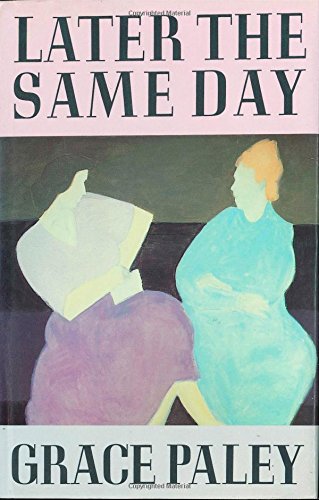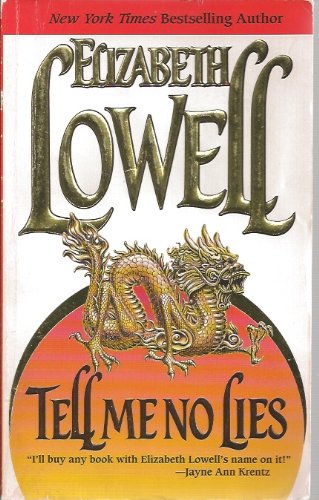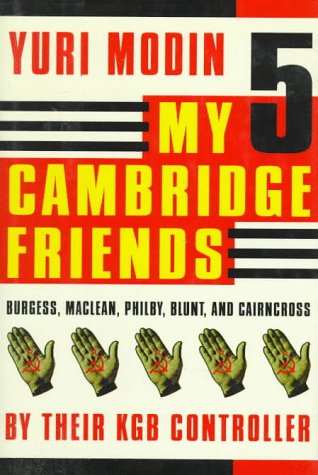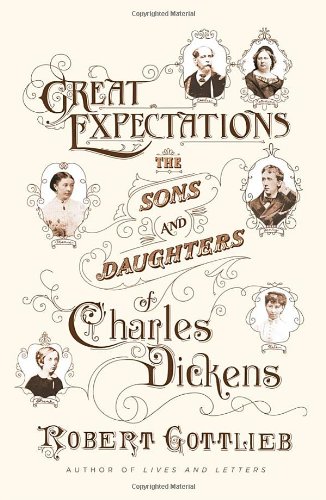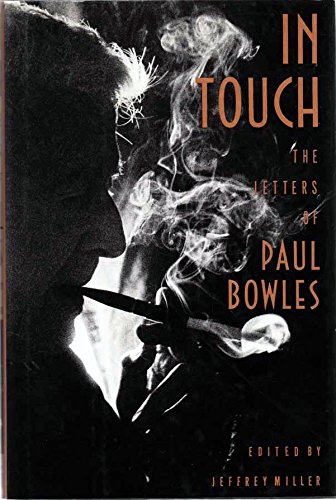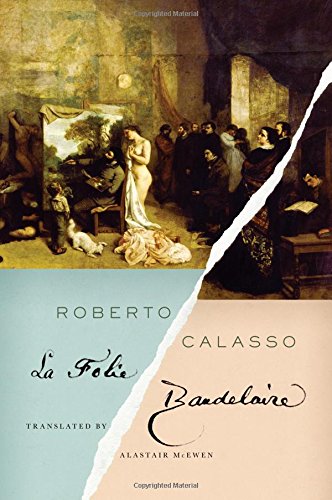Get Free Ebook I Sailed with Magellan, by Stuart Dybek
Taking into consideration guide I Sailed With Magellan, By Stuart Dybek to read is additionally needed. You could decide on guide based upon the preferred themes that you like. It will engage you to enjoy reading various other publications I Sailed With Magellan, By Stuart Dybek It can be likewise regarding the need that obliges you to read guide. As this I Sailed With Magellan, By Stuart Dybek, you could discover it as your reading book, also your preferred reading publication. So, discover your favourite book below and also obtain the link to download and install the book soft documents.
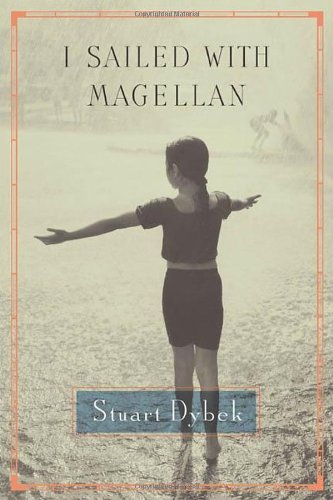
I Sailed with Magellan, by Stuart Dybek

Get Free Ebook I Sailed with Magellan, by Stuart Dybek
Why must wait for some days to obtain or obtain the book I Sailed With Magellan, By Stuart Dybek that you buy? Why need to you take it if you could obtain I Sailed With Magellan, By Stuart Dybek the faster one? You could find the very same book that you purchase right here. This is it guide I Sailed With Magellan, By Stuart Dybek that you can obtain directly after buying. This I Sailed With Magellan, By Stuart Dybek is popular book in the world, of course lots of people will certainly aim to have it. Why do not you become the first? Still puzzled with the means?
The means to get this book I Sailed With Magellan, By Stuart Dybek is quite easy. You could not go for some areas as well as spend the moment to only find guide I Sailed With Magellan, By Stuart Dybek In fact, you could not constantly get the book as you agree. However right here, just by search as well as discover I Sailed With Magellan, By Stuart Dybek, you can get the listings of guides that you really expect. Occasionally, there are lots of publications that are showed. Those publications naturally will certainly impress you as this I Sailed With Magellan, By Stuart Dybek collection.
Are you considering mostly books I Sailed With Magellan, By Stuart Dybek If you are still confused on which one of guide I Sailed With Magellan, By Stuart Dybek that must be acquired, it is your time to not this site to look for. Today, you will require this I Sailed With Magellan, By Stuart Dybek as one of the most referred publication and a lot of required book as resources, in other time, you could take pleasure in for other books. It will certainly depend on your prepared needs. Yet, we consistently recommend that publications I Sailed With Magellan, By Stuart Dybek can be a wonderful invasion for your life.
Even we talk about guides I Sailed With Magellan, By Stuart Dybek; you could not discover the printed books right here. Numerous compilations are supplied in soft file. It will precisely offer you much more perks. Why? The initial is that you may not have to carry the book all over by fulfilling the bag with this I Sailed With Magellan, By Stuart Dybek It is for the book is in soft data, so you can save it in gadget. After that, you could open up the gizmo all over and check out guide appropriately. Those are some couple of perks that can be obtained. So, take all advantages of getting this soft file book I Sailed With Magellan, By Stuart Dybek in this web site by downloading in web link provided.

Major new fiction from an acclaimed master
From the prizewinning writer Stuart Dybek comes a superb new work: a novel-in-stories, eleven masterful tales told by a single voice with remarkable narrative power. In I Sailed With Magellan, Dybek finds characters of irrepressible vitality amidst the stark urban landscapes of Chicago's south side; there, the daily experiences of the neighborhood are transformed in the lush imaginative adventures of his hero, the restless Perry Katzek.
There is remarkable music in each of Dybek's intertwined episodes, the rhythm of street life captured in all its emotional depth and unexpected humor: a man takes his young nephew to a string of taverns where the boy sings for his uncle's bourbon; a small-time thug is distracted from making a hit by the mysterious reappearance of several ex-girlfriends; two unemployed youths hatch a scheme to finance their road trip to Mexico by selling orchids stolen from the rich side of town; a young couple's amorous beach adventure is interrupted when an unexpected visitor washes ashore. As these poignant, often funny chapters unfold, Perry grapples toward the exotic possibilities the world offers him, glimpsing them even beneath the at times brutal surface of the inner-city.
Throughout I Sailed With Magellan, fans of Dybek will find the captivating storytelling, the sharp, spare prose, the brilliant dramatization of resilient, inventive humanity that they have come to expect from him.
- Sales Rank: #1774190 in Books
- Published on: 2003-11-15
- Original language: English
- Number of items: 1
- Dimensions: 8.25" h x .80" w x 5.50" l,
- Binding: Hardcover
- 320 pages
From Publishers Weekly
Dybek's third work of fiction (his first in over 10 years, after the story collections Childhood and Other Neighborhoods and The Coast of Chicago) comprises 11 elegiac, interlocking stories narrated by Perry Katzek, a young Polish-American growing up on Chicago's racially diverse South Side in the 1950s and 1960s. Although it lacks the narrative momentum of a linear novel, the book offers a powerful, cumulative portrait of the lives of Perry, his family and the people in his neighborhood, where "it seemed that almost every day someone lost teeth at one or another of the corner bars." "Breasts" follows three men with only tenuous connections to Perry, including Joey Ditto, a gangster who keeps getting distracted from making a ruthless hit by the ethereal forms of past lovers. "Blue Boy," which begins as a tale about a sick youngster, ends as a gorgeous contemplation of loss. The strongest stories deal directly with Perry's exploits. In "Orchids," Perry and his friend Stosh try to scheme their way to Mexico by stealing exotic orchids, and in the much-anthologized "We Didn't," Perry and his girlfriend's erotic lakeshore tumbling ("Swimsuits at our ankles, we kicked like swimmers to free our legs") is interrupted by the discovery of a dead body. "I was the D. H. Lawrence of not doing it," Perry reflects, "the voice of all would-be lovers who ached and squirmed." Indeed, all of these beautifully written stories teem with aching recollections. They are lyrical odes to wasted lives, youthful desires, vanishing innocence and the transformative power of memory, which is "the channel by which the past conducts its powerful energy; it's how the past continues to love."
Copyright 2003 Reed Business Information, Inc.
From Booklist
*Starred Review* Whenever Perry Katzek's much loved Uncle Lefty takes him up on the roof of his building to see the pigeon coop and the great grid of Chicago, he says, "Welcome to Dreamsville," which could serve as an alternative title for this magical suite of linked stories. In his first book since the unforgettable Coast of Chicago (1990), Dybek writes of his hometown with the poignant realism of Henry Roth, the mythic intensity of Leon Forrest, and the poetic otherworldliness of Gabriel Garcia Marquez. Eleven perfectly formed and exquisitely sensual tales--each so saturated with personality, event, and revelation they feel like novels--illuminate transforming moments in Perry's life. Imaginative, adventurous, and romantic, Perry falls in love and loses loved ones, witnesses violence and experiences transcendence, while Dybek masterfully and tenderly conjures the edgy ambience of Chicago's ethnic neighborhoods and the great divide between the bucolic North Side and the broken-glass-strewn, tavern-spiked industrial South Side, where bravado, musical gifts, and witty repartee are highly valued. Set in a chimerical world of ice and flowers, soul-bruising hard work and sweet dreams, ruthless mobsters and die-hard friends, Dybek's mesmerizing tales coalesce into an epic of survival and spiritual growth that is, by turns, gritty, surreal, hilarious, tragic, and bittersweet. Donna Seaman
Copyright © American Library Association. All rights reserved
Review
"It's hard to tell where Nelson Algren leaves off and Stuart Dybek begins--they're a couple of naturals. They each capture the lyricism of Chicago's backstreets: the city behind the billboards. They celebrate our alleys as well as our boulevards. Stuart Dybek is, at this moment, our city's blue-collar bard. These eleven lovely stories comprise the Chicago novel of today."
--Studs Terkel
"Stuart Dybek is one of America's literary masters, and I Sailed with Magellan is a forceful new demonstration of his extraordinary skills. This book of linked stories is full of nuance and feeling and the voice of working people from a time when our world and horizons were just a little narrower and our connection to those near at hand somehow even more consequential. It is the kind of penetrating, moving book Stuart Dybek consistently writes."
--Scott Turow
"It's a superb cycle of stories -- brilliant individually and as a single whole story of the lives of those brothers and their larger family. 'Live from Dreamsville' is a Dickensian portrayal of the nightmare world inhabited by children and unsuspected by their elders. Stuart Dybek risks real emotion and achieves language of great beauty. May the book receive its due." --Frederick Busch, author of The Night Inspector
Most helpful customer reviews
15 of 17 people found the following review helpful.
Its Inventiveness and Spirit are Undeniable
By Bookreporter.com
Stuart Dybek's I SAILED WITH MAGELLAN arrives more than a decade after his previous book, a short story collection titled THE COAST OF CHICAGO. While it's neither a blockbuster nor a doorstop tome like Jeffrey Eugenides's long-awaited MIDDLESEX or Donna Tartt's years-in-the-making THE LITTLE FRIEND, I SAILED WITH MAGELLAN is definitely worth the wait, serving as a reintroduction to a writer who captures his old Chicago neighborhood with documentary detail and raconteur flourish.
Despite its billing as a novel, I SAILED WITH MAGELLAN is actually a series of short stories that have locales and characters in common. All feature a teenage narrator named Perry and all are set in the Little Village community of Chicago during the early 1960s. Dybek lovingly and often humorously evokes this time and place through telling observations.
Poor families use old bed sheets for curtains and veterans order shots for friends who didn't come back from the war. It's a dangerous, often discouraging neighborhood, and in strong, unfussy prose Dybek describes "the daily round of life where bag ladies combed alleys and the homeless, sleeping in junked cars, were found frozen to death in winter. Laid-off workmen became wife beaters in their newfound spare time; welfare mothers in the projects turned tricks to supplement the family budget; and it seemed that every day someone lost teeth at one or another of the corner bars."
Fortunately, Dybek lets his lively characters --- including a junior high writing prodigy named Camille Estrada and a slob hitman named Joe Ditto --- run wild in this setting. Rather than engineering plots and scenes for them, Dybek simply lets them tell their own stories, a rare talent that gives the book a personal, unrehearsed quality. Plus, it makes for some truly weird goings-on. As a coming-of-age story, I SAILED WITH MAGELLAN eschews any predictability in favor of a dreamlike flow of events and characters, many of which are supersaturated with local color.
There is, for instance, the Chickenman, who walks around town with a chicken perching on his head and pecking corn off his tongue. And there's Little Village's unofficial child saint, Ralphie Poskozim, who was born with blue skin: "The blue was plainly visible beneath his blue-green eyes, smudges darker than shadows, as if he'd been in a fistfight or gotten into his mother's mascara. Even his lips looked cold."
All of these strange characters are filtered through Perry's perspective, and as the novel progresses, he grows up and his concerns become more adult. Fortunately, as Perry gains more freedom, the stories don't lose their charm or their sense of wonder.
Memory works in flashes, not in fluid narratives, and it allows for exaggeration of facts. In the end these chapters cohere into something larger than a short-story collection, but the book is not like a proper novel. This is certainly not a criticism: the form of I SAILED WITH MAGELLAN may be unclassifiable, but its inventiveness and spirit are undeniable.
--- Reviewed by Stephen M. Deusner
11 of 12 people found the following review helpful.
Excellent writing, deeply known characters
By J. Rosenberg
I especially liked the stories in the first half of this book, those that focus on main character Perry, a boy growing up in a Polish neighborhood on Chicago's Southwest side in the 1950s. They are deeply felt, wonderfully detailed, highly realistic and with excellent characters. Toward the middle are a few stories more "poetic" in style that appeal to me less. The last stories return to the old neighborhood and again, the perfectly noted details and highly individualized characters drew me back into the lives of that time and place. Highly recommended for those who enjoy short fiction and anyone who appreciates excellent writing.
2 of 2 people found the following review helpful.
Among the best contemporary fiction I have read in years
By R. M. Peterson
I will start with the conclusion: READ THIS BOOK. It is exhilarating and poignant, funny and wise. It consists of eleven interlaced stories about Perry Katzek, the son of an immigrant from Poland, growing up on the South Side of Chicago in the 1950s. The Chicago setting, the kaleidoscopic episodes, the sweaty grittiness of urban, immigrant life, and the rather picaresque nature of the narrative all remind me of Saul Bellow's "The Adventures of Augie March", though, to my mind, I SAILED WITH MAGELLAN turns out to be an even better book.
No doubt much of it is based on the personal experiences of author Stuart Dybek, who was born in 1942 and grew up in the Little Village neighborhood of Chicago. Indeed, much of the book may well be personal memoir draped with but the thinnest of fictional garb. Still, it reads more like a novel (or a collection of inter-related stories) than like a memoir.
Those who are from Chicago and are now between the ages of 55 and 75 might treasure the book just a tad more than the rest of us, inasmuch as it features such places as Twelfth Street Beach, Sportsman's Park, the Rocks, Meigs Field, Douglas Park, the outdoor market on Maxwell Street, the Sanitary Canal, and the Baha'i Temple. (I certainly would treasure any novel half as good about Philadelphia - my hometown - during the same years.) But one need not be from Chicago to find the book special. What it has to say about memory, childhood and youth, and the human condition should speak to most, and especially to males who grew up in an urban, working-class setting.
The book abounds with lovable characters and with sparkling anecdotes. Among the former are Perry's father (whom he and his brother call "Sir" because one night while watching "Leave It to Beaver" he had said how nice it was that Wally and Beaver called their father "Sir"), his uncle Lefty who played the sax and the horses, his best friend Stosh, and his erstwhile girlfriend Laurel Elaine Levanto who left Perry stranded in the Fire Truck Graveyard after the high school prom. Among the anecdotes is this one about Denny "the Fish" Mihala: when the fourth-grade teacher Sister Philomena asked the class, "If birds come in flocks, and fish in schools, what other kinds of groupings can you name?", Denny eagerly answered, "A dozen donuts!"
The motif that struck home with me the most had to do with memory and nostalgia. Here is one such excerpt: "Who knows why certain humble objects - a bike, a sweater, a sled - are salvaged by memory or dream to become emblems of childhood? Childhood, an alternative universe expanding into forgetfulness, where memory rather than matter is the stuff of creation."
I SAILED WITH MAGELLAN is also noteworthy for its writing and craftsmanship. The stories are skillfully interwoven, and there are moments when Dybek's writing is brilliant, such as when he refers to a character gazing up at the nighttime sky, "aware that he was just another speck adrift in stardust on the absolute zero breath of God."
I SAILED WITH MAGELLAN (the title comes from a song Perry's brother Mick sang when they were kids) was published in 2004, which to my way of thinking still makes it contemporary fiction. I don't read a lot of contemporary fiction. Maybe I should make a point of reading more, because I SAILED WITH MAGELLAN is first-rate literature. It easily is one of the ten best books I read in 2012.
I Sailed with Magellan, by Stuart Dybek PDF
I Sailed with Magellan, by Stuart Dybek EPub
I Sailed with Magellan, by Stuart Dybek Doc
I Sailed with Magellan, by Stuart Dybek iBooks
I Sailed with Magellan, by Stuart Dybek rtf
I Sailed with Magellan, by Stuart Dybek Mobipocket
I Sailed with Magellan, by Stuart Dybek Kindle
